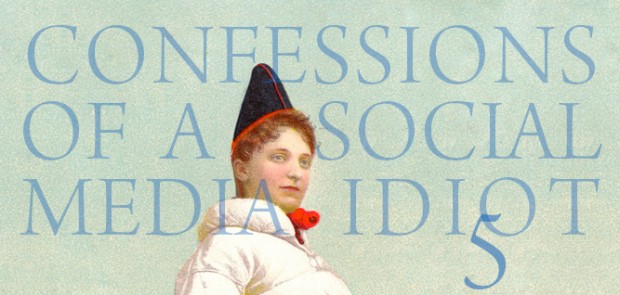Is Open Content turning creatives into dinosaurs?

NOT EVERYONE IS ALL that crazy about the big changes in marketing that social media hath wrought. I’m referring to certain individuals in my tribe, the “creatives,” who are going through a kind of evolution of their own as they figure out how to respond to this changing landscape.
More specifically, they question the validity of what some refer to as open content, that free sharing and online dissemination of knowledge and information that’s a core principle of content marketing.
Having mastered the traditional advertising and design paradigm, these folks – who’ve so long held the keys to the treasure chest of words and pictures – are bedeviled, bothered, and bewildered to see the lid thrown open and all their goodies being handed out as free samples.
Content creators balk at giving away the farm
I encountered their objections recently on a LinkedIn Group discussion amongst creative directors. This particular thread was triggered by one creative director’s question, which was, don’t we, the ones who are making that content, have more to lose than to gain in the content marketing movement.
Another contributor echoed his sentiments: “Hard won skills and information are too often thrown out on the internet for free.” The discussion went on to attribute a perceived, growing irrelevance of creative talent to “all of this free spewing of know-how information into the ether” and “the compulsive tendency of many from within the industry to be constantly spreading insider knowledge online.”
It certainly makes sense, this suggestion that to freely distribute content, no strings attached, puts at jeopardy the livelihood of those who, up til now at least, have been creating most of that content.
The solution, according to the creative director who started the discussion, was that we creatives do the opposite of content marketing, and instead of participating in this freebie frenzy, work at developing proprietary knowledge, trade secrets if you will, to differentiate ourselves from competitors, and in that way, begin to reclaim our position closer to the top of the food chain.
Speaking for myself, as the creator of this blog, the Confessions series you’re now reading in particular, and weekly videos for two Youtube channels, I have to admit I’ve wondered myself if I’m giving away too much.
When creatives faced extinction before
Complaints in the forum reached their peak when the creative director asking the original question partially blamed content marketers for what he called the “decimation of the creative workplace.”
And suddenly the scenario sounded familiar.
Yep, I’ve seen creative workplaces decimated before, usually in conjunction with major shifts in technology. Giant, asteroid-like balls of fire smashed into our world, for instance, in the form of desktop publishing or digital photography. The impact scared everybody so bad they either jumped clean out of their stegosaurus suits to evolve and adapt, or they curled up on the floor to be buried under shifting tectonic plates and become fossils.
And so I wondered out loud on that forum if the responsibility doesn’t lie so much with content marketing, open content, and sharing, but rather with us as creatives, and how we choose to respond to the inevitable shifts in our own world. But don’t worry, I never said anything about stegosaurus suits or fossils.
Then I remembered something else from the past, the name David Ogilvy.
Was David Ogilvy the first content marketer?
A half-century ago, in 1963, David Ogilvy wrote a book that could be considered a pioneering example of content marketing.
The publisher, London’s Southbank Publishing, describes the book this way: “Regarded as the father of modern advertising, Ogilvy was responsible for some of the most memorable advertising campaigns ever created. Confessions of an Advertising Man is the distillation of all the Ogilvy concepts, tactics, and techniques that made this international best–seller a blueprint for sound business practice.”
Chapters include How to Manage an Advertising Agency, How to Get Clients, How to Write Potent Copy, How to Illustrate Advertisements and Posters, and How to Make Good Television Commercials.
I’m betting that some in his day thought Ogilvy was giving away the farm. And not just his farm, but their farm as well.
But instead of having a destructive effect, Ogilvy’s open sharing of knowledge is more likely to have been a calculated step in the growth of one of the world’s largest and most influential advertising conglomerates. According to Wikipedia, the agency now operates 450 offices in 120 countries.
And it employs about 18,000 people.
Both the success of Ogilvy’s book and his legacy in advertising fly in the face of the suggestion that sharing knowledge is either an unsustainable business model or destructive to creatives in general. More convincing is the viability of the agency he founded, the positive influence it’s had on the public perception of the advertising industry, and the part these things have played in keeping it vibrant and relevant.
No, I’d suggest that not only was David Ogilvy one of the pioneers of twentieth-century content marketing, but also that the success of his own sharing confirms the relevance of the open content philosophy.
And whether or not we as creative professionals survive this evolutionary leap depends on how willing we are to release our grip on business models and attitudes that may already be extinct.